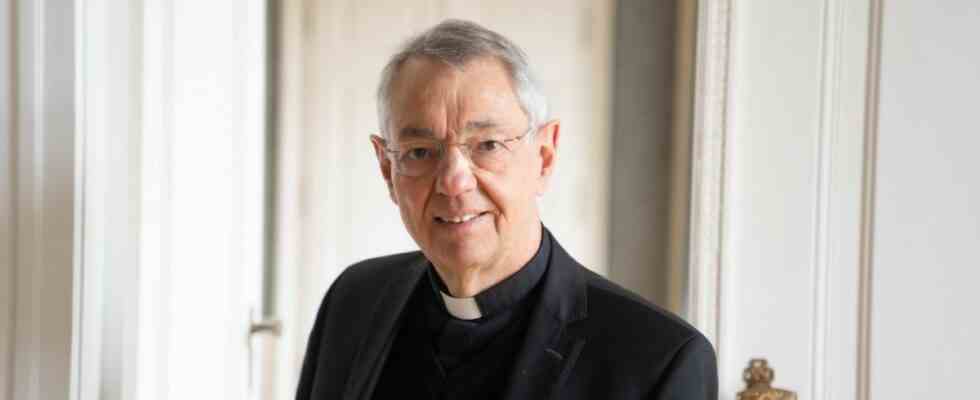The resignation came as a surprise. And of course it immediately led to the question: who will be the new archbishop of Bamberg? It is not to be expected that a decision will be made in the near future. The Catholic Church and the Vatican are not known for making quick decisions. On November 1, Rome and the Archdiocese of Franconia announced that Ludwig Schick, 73, was stepping down as archbishop after 20 years. The Pope accepted the resignation. On Sunday, Schick will be given a solemn farewell with a service in the cathedral.
Whoever follows him will not be able to escape the numerous crises in the Catholic Church in tranquil Bamberg either: the number of people leaving is high, cases of abuse keep coming to light, and when it comes to reform issues, progressive and conservative forces are now quite irreconcilable. And in general, the Catholic Church in Germany can want a lot – but only the Vatican can initiate changes. And he doesn’t want to.
Of course, various names have long been circulating when there is speculation about the Schick successor. In the Bavarian episcopate, the move to Bamberg would mean promotion to archbishop for Bishop Franz Jung, 56, from neighboring Würzburg, or for Bishop Stefan Oster, 57, from Passau. A candidate from the second management level may also come into play – before his appointment as Archbishop of Bamberg, Schick was Vicar General and Auxiliary Bishop of Fulda.
According to the State Church Treaty between Bavaria and the Vatican, the Pope is free to decide when appointing a new archbishop. A list of suitable candidates is drawn up by the cathedral chapter, but Francis is not bound by it. Of course, many laypeople in particular do not see this as contemporary – they want to have a say and allow more democracy to enter the institution. Schick himself had called for reforms: There must be new structures, “for example, that the bishops can be elected by the faithful,” he told the dpa news agency in March.
After all, representatives of the cathedral chapter recently met with the board of the lay committee of the diocesan council. They met to “exchange what qualities they would like from the future Archbishop of the Archdiocese of Bamberg,” said spokesman Harry Luck. Of course, he did not give any details. And: Such meetings had already taken place before earlier bishops were appointed.
A clear demand came from the diocesan youth: “Here and now it shows how serious the clergy really is with the limitation of their own power and the separation of powers,” said the diocesan association of the Federation of German Catholic Youth (BDKJ) shortly after Schick’s resignation . The synodal process has shown a clear way to more participation. So far, however, all signals indicate that the change at the top of the Archdiocese of Bamberg will proceed as usual: Proposals that are kept secret go to Rome, where a decision is made. And the 630,000 Catholics in the Archdiocese must submit. And we’ll see: does the New Reform think good and support them? Or should everything remain as it is? How does the church position itself when there are fewer and fewer members, when more and more pews remain empty during the service?
But whether the list of suggestions can be easily filled? The Catholic Church in Germany has had a shortage of priests for years. In 2001, according to figures from the German Bishops’ Conference (DBK), 124 men were ordained, 20 years later there were just 48. This means that the circle of candidates for bishoprics is becoming ever more limited. After all, canon law expects a well-founded theological education, at best a doctorate. In addition, of course: “firm faith, good morals, piety, wisdom and prudence”. The search is on.

